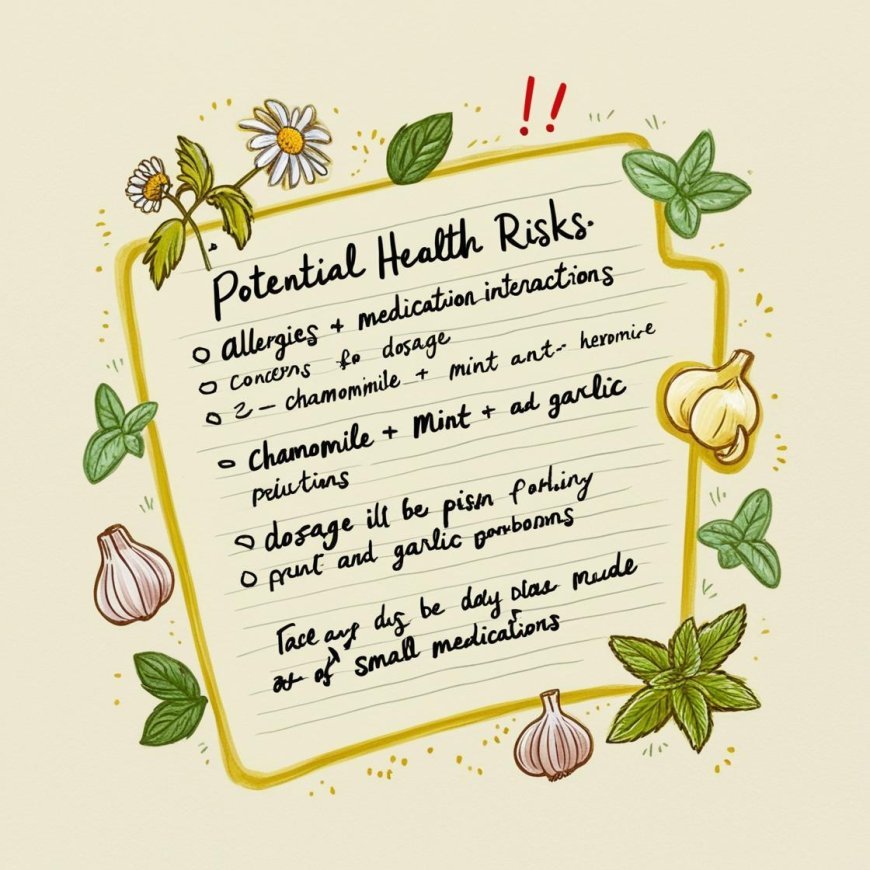Natural Remedies for Common Ailments – Benefits and Risks
Explore the world of natural remedies for common ailments, from herbal teas for headaches to essential oils for stress relief. Discover the benefits these natural treatments offer, as well as the risks involved in using them without guidance. Understand when to opt for holistic methods and when to consult a healthcare professional for safe and effective healing.

Today, an increasing number of people are looking for natural solutions to treat minor health issues. Natural medicines can relieve headaches, reduce anxiety, and ease stomach upsets. In truth, natural therapies appear the most appealing due to their composition and relationship with less harsh or softer conventional medication. However, many natural therapies come with hazards. Knowing both the benefits and potential drawbacks will help you make safer, more informed decisions about utilizing them in your everyday routine.
1. Natural remedies for common ailments and their benefits
· Ginger for nausea and digestion.
· Apply turmeric to relieve inflammation and soreness.
Turmeric contains curcumin, which has strong anti-inflammatory properties. It is mainly effective for treating arthritis and other joint discomfort. Turmeric has a natural potential to relieve pain while also ensuring cardiovascular wellness.
· Chamomile can treat anxiety and even sleep difficulties.
Chamomile refers to the famous and well-known calming chamomile tea. It induces sleep and is recommended for people suffering from anxiety and sleeping issues. It has a slight sedative effect that promotes relaxation and reduces tension.
· Peppermint for Headaches and Muscle Pain:
Peppermint oil, when applied topically, helps relieve headaches and tight muscles because of its cooling action, which has an anti-inflammatory impact.
· Garlic promotes immune function.
Garlic is considered to have antimicrobial properties and is often used to boost the immune system. It is possible that it will alleviate cold symptoms because garlic has been shown to boost heart health due to its anti-inflammatory properties.
2. Risks and Precautions of Natural Remedies

· Allergies and Side Effects:
Herbal medicines, while natural, can induce allergic reactions. Chamomile sap, for example, affects persons who are allergic to ragweed. Ginger eating in excess produces heartburn and stomach aches due to enhanced combustion.
· Drug interactions:
Herbal medicines may interact with drugs, potentially leading to negative effects. Garlic, for example, causes blood thinning and should be avoided by anyone on anticoagulants. In contrast, St. John's Wort interacts with antidepressant medications.
· Dosage-related challenges:
Natural therapies may not be as simple as over-the-counter medications; the dose may not be as obvious or consistent, leading to inappropriate use. In that situation, see a healthcare professional or follow any existing advice.
· Some Remedies Lack Scientific Research.
While most natural remedies have a documented track record, others lack scientific support. The former will further delay a necessary medical operation while also exposing the patient to health risks.
3. Safe Use of Natural Remedies.
· Consult a healthcare professional.
Consult a healthcare practitioner before beginning any sort of herbal treatment, especially if the patient is taking prescription medicine or has a medical problem.
· Begin with small steps and observe.
Begin with tiny doses to monitor your body's reaction and catch any negative effects early on.
· Use Reliable Sources:
In conclusion, natural remedies are useful in the treatment of common illnesses, but they also pose risks. Knowledge, caution, and professional assistance are thus critical steps in benefiting without exacerbating negative side effects. Administer nature's medicine with caution for a better health outcome.
What's Your Reaction?









































































